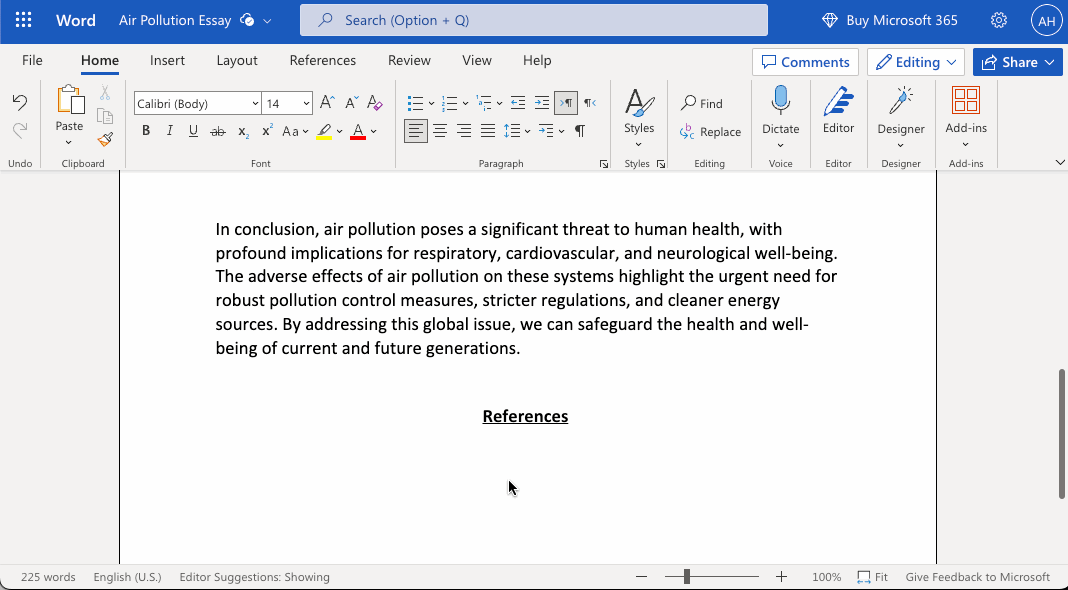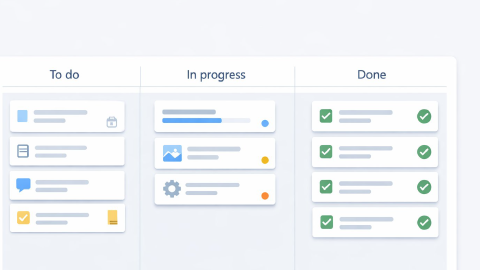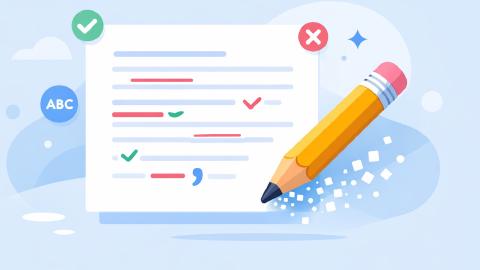How to Create an APA Citation for a Book: Format + Tips
Create APA citations for referencing books with ease.
In academic writing, citations play a crucial role. They provide a structured way to acknowledge the work of others and avoid plagiarism.
Among the various citation styles, the American Psychological Association (APA) style is frequently used.
However, creating APA citations can be difficult, especially if you are trying to cite a book that you are referencing in an essay or presentation.
This article will focus on the APA citation style, specifically for books, and provide a comprehensive guide to help you navigate this important aspect of academic writing.
What Are APA Citations?
APA citations are a system of referencing developed by the American Psychological Association. This system is widely used in the social sciences, business, and nursing, among other disciplines.
The APA citation style provides a consistent method for writing references and in-text citations. This consistency ensures that the reader can easily trace the origin of the information, enhancing the credibility of your work.
Why Are APA Citations Important?
APA citations are important for several reasons:
Academic Integrity: They allow writers to give proper credit to the original authors, acknowledging their contributions and avoiding plagiarism.
Traceability: Citations provide a clear way for readers to trace the origin of the information, ideas, or theories used in a piece of writing. This allows readers to verify the information or explore the sources further if they wish.
Consistency: The APA citation style provides a consistent format for referencing, making it easier for readers to understand the sources and for writers to organize their references.
Credibility: Proper citation practices enhance the credibility of the writer's work, demonstrating that their arguments are grounded in established research.
Contribution to Knowledge: By citing sources, writers contribute to the scholarly conversation on a topic, linking their work to a broader academic discourse.
When Do You Use APA Citations for Books?
APA citations for books are used whenever you refer to the content of a book in your writing. This could be when you're directly quoting from a book, paraphrasing its content, or even just referring to an idea or theory that it contains.
As a rule of thumb, when you borrow ideas, quotes, or content from a book, cite it in your references page.
It's important to cite these sources to give credit to the original authors and to allow readers to follow your research trail. This practice not only respects the work of others but also enhances the transparency and integrity of your own.
Format for Citing a Book in APA Style
Citing a book in APA style involves several key components. Here's a general format:
Author's Last Name, First Initial(s). (Year of Publication). Title of the book. Publisher.
For example:
Rowling, J.K. (1997). Harry Potter and the Philosopher's Stone. Bloomsbury.
Note that the title of the book is in italics and only the first letter of the first word of the title, the first word after a colon or a dash in the title, and proper nouns are capitalized. This format allows readers to quickly identify the source and find it if they wish to explore further.
APA Citation Generator

If you are working on citing a book for an upcoming assignment, give Text Blaze's APA citation generator a try! Using a citation generator can help you quickly create accurate citations to help you knock out your references in no time.
Here's why you should use Text Blaze's APA citation generator:
It is universally compatible, meaning it works seamlessly across various sites/apps such as Google Docs, Microsoft Word, Gmail, Outlook, and more.
It allows for the rapid generation of all necessary citations for a given assignment within a matter of minutes.
Rather than resorting to the time-consuming process of copying and pasting citations, which often disrupts the formatting, Text Blaze offers the convenience of inserting them using keyboard shortcuts.
It allows you to create full citations or in-text citations.
{note}To create your citation, fill out all required fields (indicated with a *) as well as any additional fields necessary.
Your citation will be created at the bottom of this form. Only the citation will be output by this snippet.
Source
{formmenu: default=book; image; journal article; online video; textbook; website; name=source}
Citation Type
{formmenu: default=Full citation; In-text citation; name=citationtype; multiple=yes}
Selecting both will output both citations at once.
Citation Details
{if: source="book" or source="textbook"}
{if: includes(citationtype, "Full citation")}Year* {formtext: name=year}{if: testregex(year, "[^0-9]")}{error: Enter numbers only}{endif}
Title* {formtext: name=title; cols=50}
Publisher* {formtext: name=publisher; cols=25}
Edition {formtext: name=edition; cols=25}
Include the ordinal indicator, such as "1st", "2nd", "3rd", or "4th"
Page(s){if: includes(citationtype, "In-text citation")}*{endif} {formtext: name=pages; cols=25}
Numbers only for a single page. Multiple pages should be separated with a - such as 10-15.
DOI {formtext: name=doi; cols=25}
ID only. Do not include https://www.doi.org/
URL {formtext: name=url; cols=50}
Include the full URL. If a DOI is included, URL will be ignored.
{elseif: includes(citationtype, "In-text citation") and not includes(citationtype, "Full citation"); trim=right}
Year* {formtext: name=year}{if: testregex(year, "[^0-9]")}{error: Enter numbers only}{endif}
Pages* {formtext: name=pages; cols=25}
Numbers only for a single page. Multiple pages should be separated with a - such as 10-15.{endif}
{elseif: source="journal article"}
{if: includes(citationtype, "Full citation")}Year* {formtext: name=year}{if: testregex(year, "[^0-9]")}{error: Enter numbers only}{endif}
Title* {formtext: name=title; cols=50}
Journal* {formtext: name=journal; cols=50}
DOI {formtext: name=doi; cols=25}
ID only. Do not include https://www.doi.org/
Volume {formtext: name=volume; cols=25}
Issue {formtext: name=issue; cols=25}
Page(s) {formtext: name=pages; cols=25}
Numbers only for a single page. Multiple pages should be separated with a - such as 10-15.
URL {formtext: name=url; cols=50}
Include the full URL. If a DOI is included, URL will be ignored
{elseif: includes(citationtype, "In-text citation") and not includes(citationtype, "Full citation"); trim=right}
Year* {formtext: name=year}{if: testregex(year, "[^0-9]")}{error: Enter numbers only}{endif}{endif}
{elseif: source="website"}
{if: includes(citationtype, "Full citation")}Title* {formtext: name=title; cols=50}
Website Name* {formtext: name=website; cols=25}
URL* {formtext: name=url; cols=50}
Include the full URL
Publishing date: {formdate: YYYY, MMMM D; name=pubdate}
Date accessed: {formdate: MMMM D, YYYY; name=accessdate}
{elseif: includes(citationtype, "In-text citation") and not includes(citationtype, "Full citation"); trim=right}
Year* {formtext: name=year}{if: testregex(year, "[^0-9]")}{error: Enter numbers only}{endif}{endif}
{elseif: source="image"}
{if: includes(citationtype, "Full citation")}Title or Description* {formtext: name=title; cols=50}
If the image has a title, use it. Otherwise, provide a description of the image [in square brackets like this].
Year* {formtext: name=year; cols=25}{if: testregex(year, "[^0-9]")}{error: Enter numbers only}{endif}
Source {formtext: name=imagesource; cols=25}
URL {formtext: name=url; cols=50}
{elseif: includes(citationtype, "In-text citation") and not includes(citationtype, "Full citation"); trim=right}
Title or Description* {formtext: name=title; cols=50}
If the image has a title, use it. Otherwise, provide a description of the image.
Year* {formtext: name=year; cols=25}{if: testregex(year, "[^0-9]")}{error: Enter numbers only}{endif}{endif}
{elseif: source="online video"}
{if: includes(citationtype, "Full citation")}Channel or Username of video publisher* {formtext: name=channel; cols=25}
Publishing date* {formdate: YYYY, MMMM D; name=pubdate}
Title* {formtext: name=title; cols=50}
Website Name* {formtext: name=website; cols=50}
URL* {formtext: name=url; cols=50}{if: includes(citationtype, "Full citation") and includes(citationtype, "In-text citation")}
Timestamp* {formtext: name=timestamp}
Provide as HH:MM:SS{endif}
Note: Listing contributors is not required for online videos. Only add below if you have this information. Check this box if you'd like to include contributors in the citation: {formtoggle: name=Include Contributors in online video citation}
{elseif: includes(citationtype, "In-text citation") and not includes(citationtype, "Full citation"); trim=right}
Channel or Username of video publisher* {formtext: name=channel; cols=25}
Publishing date* {formdate: YYYY, MMMM D; name=pubdate}
Timestamp* {formtext: name=timestamp}
Provide as HH:MM:SS
{endif}{endif}
Contributor Details
{if: (not includes(citationtype, "Full citation")) and (source="online video" or source="image")}Contributor details are not necessary for in-text citations for {=source}.{else}Number of contributors: {formmenu: default=1; 2; 3; 4; 5; name=contributors}
Contributor 1
| First Name{if: includes(citationtype, "Full citation")}*{endif} | Middle Initial | Last Name* | Suffix | Contributor Type* |
| {formtext: name=c1first; cols=15} | {formtext: name=c1mi; cols=3} | {formtext: name=c1last; cols=15} | {formtext: name=c1suff; cols=3} | {c1type="Author"}{=c1type} |
Contributor 2
| First Name{if: includes(citationtype, "Full citation")}*{endif} | Middle Initial | Last Name* | Suffix | Contributor Type* |
| {formtext: name=c2first; cols=15} | {formtext: name=c2mi; cols=3} | {formtext: name=c2last; cols=15} | {formtext: name=c2suff; cols=3} | {if: source="journal article" or source="website" or source="image" or source="online video"}{c2type="Author"}{=c2type}{else}{formmenu: Author; Editor; Translator; name=c2type}{endif} |
Contributor 3
| First Name{if: includes(citationtype, "Full citation")}*{endif} | Middle Initial | Last Name* | Suffix | Contributor Type* |
| {formtext: name=c3first; cols=15} | {formtext: name=c3mi; cols=3} | {formtext: name=c3last; cols=15} | {formtext: name=c3suff; cols=3} | {if: source="journal article" or source="website" or source="image" or source="online video"}{c3type="Author"}{=c3type}{else}{formmenu: Author; Editor; Translator; name=c3type}{endif} |
Contributor 4
| First Name{if: includes(citationtype, "Full citation")}*{endif} | Middle Initial | Last Name* | Suffix | Contributor Type* |
| {formtext: name=c4first; cols=15} | {formtext: name=c4mi; cols=3} | {formtext: name=c4last; cols=15} | {formtext: name=c4suff; cols=3} | {if: source="journal article" or source="website" or source="image" or source="online video"}{c4type="Author"}{=c4type}{else}{formmenu: Author; Editor; Translator; name=c4type}{endif} |
Contributor 5
| First Name{if: includes(citationtype, "Full citation")}*{endif} | Middle Initial | Last Name* | Suffix | Contributor Type* |
| {formtext: name=c5first; cols=15} | {formtext: name=c5mi; cols=3} | {formtext: name=c5last; cols=15} | {formtext: name=c5suff; cols=3} | {if: source="journal article" or source="website" or source="image" or source="online video"}{c5type="Author"}{=c5type}{else}{formmenu: Author; Editor; Translator; name=c5type}{endif} |
Join thousands of teams who are using Text Blaze templates.
Conclusion
Mastering APA citation for books is a valuable skill in academic writing. It ensures that we give credit where it's due and provides a clear path for readers to follow our research.
Use Text Blaze's APA citation generator above to save time creating citations for your upcoming assignment and complete your references page in no time.




